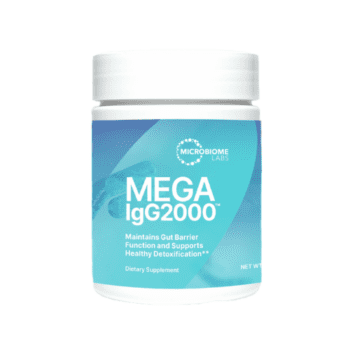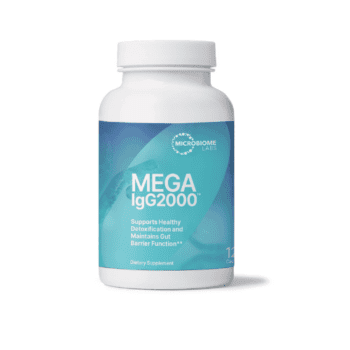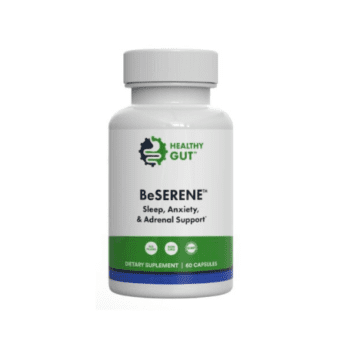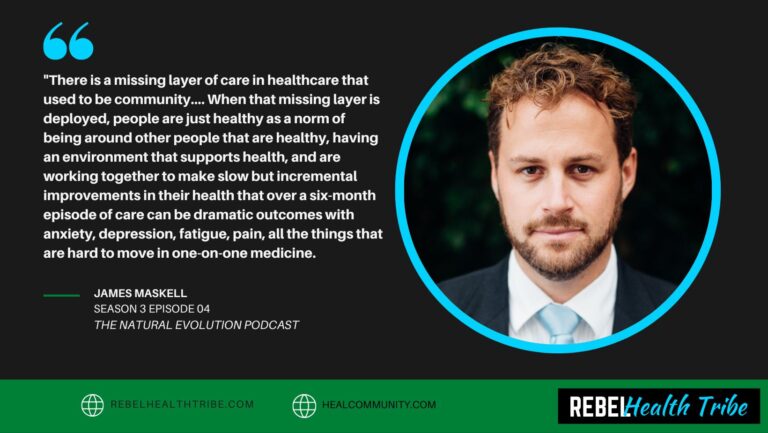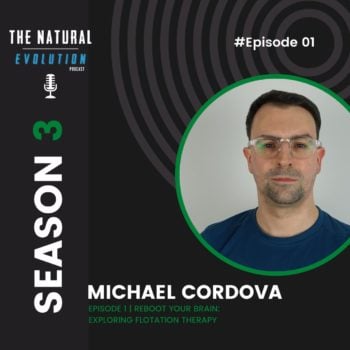
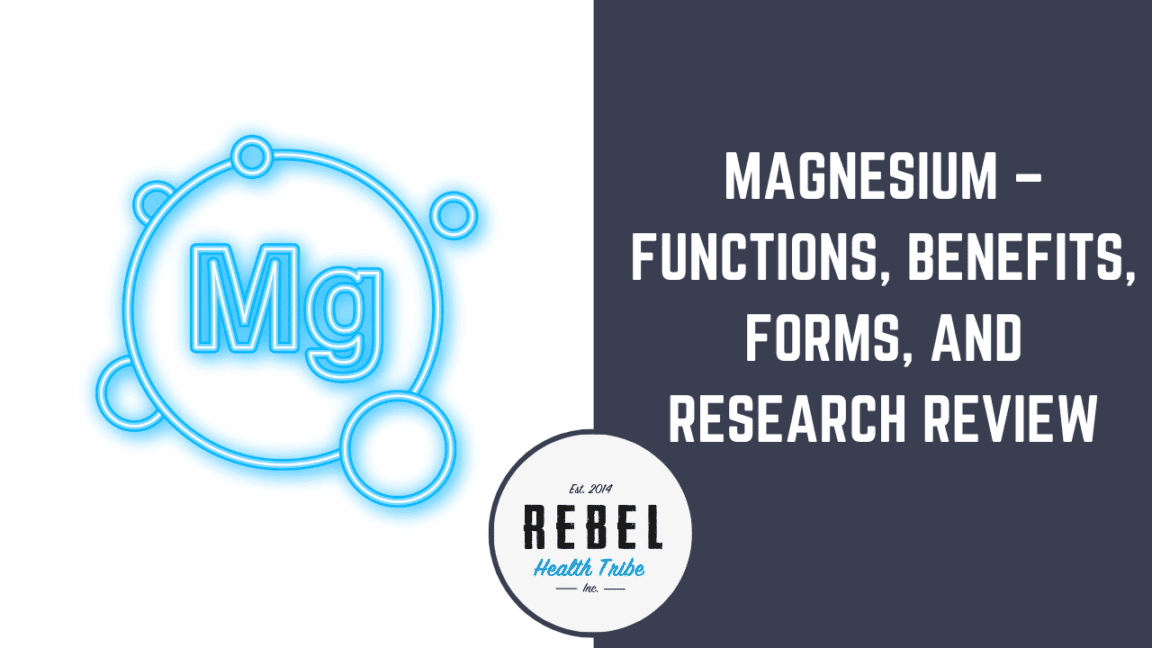
More Posts from
Foundations & Optimization

Genetics and Hormone Production, Transport, Utilization, and Metabolism
Our genetics play a larger role in our hormones than most people

Genetics & Neurotransmitters: Impact on Your Mood, Energy, Hormones, and More!
Have you wondered why an antidepressant didn’t work for you? Have you

Genetics and Detoxification: Your genes are key to knowing what detox protocol will best suit your body.
https://vimeo.com/821487331 If you’ve ever bought a detox kit off a shelf

RHT Health Foundations &
Optimization Guide
Our Top Recommendations in One Simple Guide -
Your Starting Point for Optimal Health!
- 12+ years of research and experience distilled down into one simple guide
- Easy, practical, and actionable steps you can take right away
- The most-repeated recommendations from our 100+ guest experts over the years
- Something for everyone - regardless of where you are on your health journey
Magnesium – Functions, Benefits, Forms, and Research Review
with Steven Wright, Founder of Healthy Gut
Steve Wright, Founder of Healthy Gut, joins us to discuss the following:
- The vital (and often overlooked) role Magnesium plays in digestion and overall gut/microbiome health
- Why testing true Magnesium status is extremely difficult and unreliable
- Why Healthy Gut decided to formulate and produce a Magnesium supplement when there are already hundreds on the market
- Potential benefits of Magnesium supplementation (there are many!) and who may want to consider it
- A breakdown of several of the most popular forms of Magnesium and why Steve chose the one he did for their product
Webinar Transcript
Michael Roesslein:
Recording in progress. We are live, are sort of live. We’re recording. We are live. You’re not here live. I am here with Steve Wright again from Healthy Gut. We are going to talk about magnesium today. We’ve talked a lot about digestive enzymes and tributyrin and all the different gut products that he’s got over there, and then they just released a product called Magnesium-HP, which your first reaction might be digestive enzymes, paraprobiotic, butyrate, HCL, and then magnesium. One of these doesn’t belong in this category, it would seem. I’ve learned from Steve that that’s not true and that there’s a lot that has to do… Magnesium has to do with digestion in the gut, so we’ll get into that. We’ll learn about the product and talk about just the benefits overall of magnesium.
Steve, thanks for hopping on with us to have this chat on magnesium.
Steven Wright:
Yeah. Thanks for having me back, Michael.
Michael Roesslein:
Cheers to another successful product launch.
Steven Wright:
Yeah. Yeah. People seem to like it.
Michael Roesslein:
Yeah. I’ll start with that. You’ve got the enzymes. You got the HCL. Everything is very digestive-gut focused. The company is called Healthy Gut, very digestive-gut focused. Magnesium, which our audience is pretty smart, I think they all are probably pretty familiar with magnesium. They know it’s like a Jack-of-all-trades kind of mineral. It’s something that a lot of people take supplementally. It’s a very common supplement to take. I don’t think their first reaction or first thought is magnesium has direct benefits for the gut or that it relates directly to my digestion. I guess we could start there.
You brought up some interesting stuff last time we talked about magnesium that I didn’t know. What got the ball rolling?
Steven Wright:
Seriously, sensitive people in our community were complaining about the magnesium products on the market, either they had extra ingredients in the magnesium or they didn’t know what kind to take for sensitive guts, what’s the best gut magnesium. That’s what got the project started. I was, too. I was like, “Oh, geez, magnesium, I can’t wait to research this. This is so boring.” I have had to drag my feet until two weeks before the launch until I delved into it. I mean, I did a bunch of work on trying to make the right product, but, as far as why this, well, it turns out it’s a way more interesting story and there’s way more cool stuff going on than I thought.
For certain individuals, people with chronic intestinal inflammation, people with chronic gut dysbiosis or microbiome issues and people with reduced digestive enzyme function, all of these people, and we’ll talk about constipation probably at the end, but just leaving aside that, but just talking about these standard gut issues that a lot of people are dealing with, it turns out that low magnesium status and then using magnesium can help with all three of those issues, which I didn’t even know that until I went like crazy deep into which types should we make and all those types of things.
What’s fascinating is that all the research shows that celiac disease, IBS, IBD, any of these inflammatory conditions of the gut, reduce your potential to intake magnesium and you have a much higher chance of lowered magnesium stores in the body, and then there seems to be this feedback loop where you make less digestive enzymes. Your gut dysbiosis is festering. If you take magnesium in rats, it actually improves microbiome stuff. The same thing with inflammation at the brush border. It turns out that, yeah, magnesium is awesome for blood pressure, for heart health, for bone health. It’s essential for bone health, and new research in 2021 showed it’s actually involved in 600 different enzyme functions.
Low magnesium, you’re basically screwed. You’re going to have chronic health issues, which is why it belongs on your cabinet with vitamin D. It’s just something that pretty much all humans living a Western life, sure, if you’re out there lifting boulders and not using a computer, then you probably don’t need it, but you’re watching this right now, so you’re not doing that life, so for those of us who are trying the Western version, the chances of being low magnesium are impressively high. I can go into those factors in a minute, but that’s the origin story.
Michael Roesslein:
Okay, and so there’s a lot of connections between digestion and enzymes and dysbiosis and all of that way more than you expected to find. You just mentioned a lot of people are deficient. I saw a pretty solid Facebook post you made recently about how nobody knows anything about testing magnesium. I think one of your research rabbit holes you went in was how do we really determine if somebody is deficient in magnesium?
My knowledge about testing magnesium was that the RBC magnesium marker was probably the best one to go with. I know that these are like urine tests. I know that there’s NutrEval. I know that there’s serum magnesium. There’s RBC magnesium. After I read your post, I was like, “I give up. I’m going to just assume because stress depletes magnesium, and magnesium is depleted in the soil and that the food doesn’t have as much magnesium anymore. I have had a life filled with lots of stress. I should probably just take magnesium because I’m probably deficient in it,” but what’s the mess with the testing? What did you find?
Steven Wright:
Yeah. I went into a rabbit hole that I was resisting all those months of… Anyways, the rabbit hole comes back to basically 53% of the magnesium in your body is in your bones. None of those tests measure your bone magnesium. 27% of the magnesium in your body is in your muscles. Another full 10 to 12% is in the lining of your gut. The amount that is in your red blood cells or in your serum levels-
Michael Roesslein:
It’s about 80, I think. That was about 80 total.
Steven Wright:
Yeah. Less than 1% of your entire magnesium storage are in your blood. Serum markers of magnesium are measuring 0.2 to 0.3%. RBC method is measuring around 1%. It’s like 0.8 or up to 1%, and then urine excretion we do every single day. Just because you take a pill and then you excrete more, it doesn’t actually tell you did it go to your bones? Did it go to your gut? Did it go to your heart? You don’t really know from a urine excretion.
Essentially, what I learned was that there’s no… All the places we want, all the places we want to look for, are you actually low in your bones, your muscles, your gut, your brain, we have no test for that. There’s never been a test done in animals or humans I could find that correlates RBC to cadaver bones or… Nothing. We have no data that suggests urine matters, RBC matters or serum matters. The most interesting-
Michael Roesslein:
It’s new. At Rebel Health Tribe, we’re going to roll out bone biopsies and brain biopsies to test your magnesium. No. Okay.
Steven Wright:
Totally. Totally. I mean, the coolest test that they do is called radio isotope, but also not cool in humans. They stopped doing it. They don’t stop doing it, but they don’t do as much anymore because, there, they actually tag the magnesium with radio… or not radio, but isotopes which are basically radioactive, and so-
Michael Roesslein:
Radioactive. Yeah.
Steven Wright:
… they follow it to where it goes, which is the best way to test it, but they only do that in research studies. Also, most people don’t want a bunch of radioactive stuff in their body. The radioactive isotope testing is the coolest. They don’t do much of it. All these forms, the magnesium wars out there about like, “Oh, this form is better than this form, and it has better bioavailability,” from my perspective, there’s no scientific basis to it. It’s bullshit. We don’t know. We can’t tell the bioavailability because I just told you that the testing methods in humans, unless you’re using radio isotope, are at best not correlated to anything we understand, and then, even the radio isotope, we don’t actually know because we haven’t given a placebo of just radioactive material and then magnesium and said, “Whoa, what does this do to each other?” Does the radioactivity make-
Michael Roesslein:
Who wants to go in the control group for that one? What am I going to be taking? Pellets of radioactive ions? No big deal. I just pictured the Simpsons for some reason. I feel like that’s something Homer would sign up for.
Steven Wright:
Yeah. Yeah, and so it’s-
Michael Roesslein:
Okay. That makes sense. We don’t know. We have no ability to actually accurately test someone’s level of magnesium in the places where the magnesium mostly is.
Steven Wright:
Correct.
Michael Roesslein:
Okay. We can tell how much is in their red blood cells, and that’s about 0.5% of their total magnesium.
Steven Wright:
Yes, it’s about 1%.
Michael Roesslein:
You weren’t able to find anything that correlates that to how much is in their bones or anywhere else.
Steven Wright:
Nope. In fact, those papers-
Michael Roesslein:
You could be completely deficient in the bones, but saturated in the red blood cells, and you’d think, great, I’m awesome on magnesium, but your bones are falling apart.
Steven Wright:
Totally. Yep, so if you exhibit signs of-
Michael Roesslein:
Great.
Steven Wright:
Yeah. Great. I mean, if you exhibit signs of magnesium deficiency, which is almost anything, and/or you have other risk factors for it, then it’s almost like take it daily and you’re going to be better off. Also, just observe. Try different products and observe. Do you notice a benefit? That’s the other big takeaway here.
Michael Roesslein:
Yeah, ultimately. There are many forms of magnesium that are out there. There’s oxide, citrate, glycinate, which I just changed how I pronounce for this webinar, and then threonate, which is actually one that I take that’s brain specific. I’ve noticed some pretty interesting stuff with that for depression, anxiety benefits. I don’t know what the calm one is that makes you poop.
Steven Wright:
Citrate.
Michael Roesslein:
Then there’s the ones that you lay in. I think that’s mostly oxide, the magnesium baths. Epsom salt I think is… Is that magnesium?
Steven Wright:
Usually chlorides.
Michael Roesslein:
Chloride, magnesium chloride. There’s oxide. There’s sulfides maybe, too.
Steven Wright:
Sulfate, yeah.
Michael Roesslein:
Yeah. Yeah. Yeah. There’s all these different ones. You picked the glycinate for this product. Why?
Steven Wright:
I found a radioactive isotope study that they did in patients who have Crohn’s and then had a ileal resection. They cut out part of their small intestine, so, therefore, they basically chopped their ability to absorb magnesium down through surgery. They compared magnesium oxide versus magnesium glycinate with radio isotope testing, and they found that, basically, the oxide caused a certain percentage of them to have diarrhea. They couldn’t complete the study. They actually showed pretty good bioavailability. This is going to be one of the funny takeaways from this is that magnesium oxide was absorbed 22% or something like that, and then magnesium glycinate was absorbed 24%.
The bioavailability wasn’t that much higher, but what was really important is that there weren’t people washing out due to sensitive gut issues, and then the other thing was that the oxide results were highly variable. Some people were really good at absorbing it and other people couldn’t absorb almost any of it. It could have been the diarrhea. I don’t know because I can’t get that level of data from the study. With the glycinate, it was basically steady across the board. All these people who have gut issues, who have a poor absorption potential, the glycinate didn’t piss their gut off, and there was no real variation amongst their ability to absorb it, so that’s why I chose it, as well as the benefits of glycine which is what it’s bonded to.
Michael Roesslein:
Okay. Yeah, because those are your people. Your base is the people with the gut issues, so then, all right, because magnesium is pretty well-known for having laxative effects, but that is not the glycinate. That is the citrate.
Steven Wright:
Oxide and citrate, yep. Here’s why the-
Michael Roesslein:
Okay. I remember that, with the calm product, the first time I heard about that way back in my early, early, early, early days of learning any of this stuff, I was like, oh, I’m supposed to take this. If one scoop is the dose, then four scoops is definitely better for you than one scoop, so let’s pound that, and then I was like, oh, my God, I’m going to die. I just lost seven pounds in three days, and magnesium is bad for you. That was a lot, but this stuff won’t do that.
Steven Wright:
No. No. No. This stuff, so that’s another reason why I chose it is because, with oxide, you basically have no measure of safety. If your hundred milligrams is too much for your body, you’ll have loose stool. Citrate, you get 200 to 300 milligrams of safety. Like you said, one scoop might have been okay, but two, three, four or even one-and-a-half scoops, and you’re going right to the bathroom with a fountain coming out of your butt.
The thing with glycinate is that you have many measures of safety. You can use many hundred in milligrams more before you get any sort of real flushing. In fact, mostly what you get is a softening and then slightly more of an urgency. I actually like using glycinate for people who are having hard, impacted tools, things like that. It’s not going to replace your enema or anything like that, but people who have mild constipation, it can be very helpful in higher dosages, 500 to a thousand milligrams a day. I’m a big fan of it because you don’t get those blowouts that you talked about.
Michael Roesslein:
Okay, and you mentioned higher doses, 500 to a thousand milligrams. That’s one of the other reasons you created this product was because, the magnesiums on the market, in your capsules, will have some magnesium and then some who the hell knows what and a whole bunch of other ingredients, fillers, and that word that starts with an E that makes it go through the machines easier. I never can remember that word.
Steven Wright:
Excipients.
Michael Roesslein:
Excipients or something. Yeah. Yeah, that. I can’t say it. It’s impossible. There’s a bunch of stuff in it that’s not magnesium, so to get that high dose of magnesium, you have to take a handful of capsules when, let’s face it, a lot of people with gut issues, if they’re looking at probiotics and enzymes and HCL, everybody is already taking lots of capsules. In an effort to reduce the amount of capsules and the amount of random things that are in the pills that you’re taking, I’m surprised it didn’t exist. Is it? I’ve never seen it. Your product contains magnesium glycinate, and that’s it.
Steven Wright:
Correct. Yep, that’s it. That’s actually the final reason why we decided to make it. It was clear that magnesium glycinate was the right choice from the beginning. Then I learned about the impacts around lowered enzyme status and microbiome complications if you have too low, and then I looked at the market, and I was like, oh, my gosh, everything has these different fillers, excipients, flow agents. Our group of people, A, doesn’t want to test things with that kind of stuff in it because they don’t know what’s causing them issues and whatnot and then, B, they want to take as many or they want to take as little of those pills as possible because they get pill fatigue.
I was able to find a Canadian manufacturer who’s got some special equipment. The base material comes out of the US. It’s at 20% magnesium glycinate extract or whatever. It’s 20% magnesium, 80% glycine. They have some special machines in order to pack 180 milligrams of magnesium into one capsule. You’ll see that the other doctor grade lines out there are at 120 per capsule, so it’s a 50% increase in the active ingredient you’re looking at magnesium per capsule, which allows people to take two, three extra… or two, three less pills per day taking our product. That was the final straw for us. It was like, “Hey, we can get rid of every excipients, no flows, no nothing else, and double, 50% more inside the pill. Let’s go for it.”
Michael Roesslein:
Cool, and you mentioned-
Steven Wright:
I think what people-
Michael Roesslein:
Go ahead.
Steven Wright:
What people don’t realize is that glycine is actually really helpful for the gut.
Michael Roesslein:
That’s what I was going to ask.
Steven Wright:
Yeah. Yeah.
Michael Roesslein:
What’s up with glycine? You mentioned glycine a minute ago when we were on another rant, that there’s side benefits of glycine which is the molecule that the magnesium is bonded to in this type of formula. What does glycine do that’s helpful for the gut, and what is it? It’s an amino acid?
Steven Wright:
Yeah, glycine is an amino acid. It’s helpful for basically a few things. One is it’s a building block of the gut cells, of almost all your cells. Glycine is really concentrated in bone broth, which is one of the reasons why bone broth is gut-friendly and gut-helpful. Anyways, but the cool thing about glycine is that it’s really helpful for the brain.
You mentioned magnesium threonate, which is also a really cool compound. I’ve tested it quite a bit in the past. I’ve actually given up my threonate now for just our product. I know that’s totally bogus, and I’m the creator, and you shouldn’t take my word for anything, but I actually find better, soothing, less issues winding down for sleep if I load up my magnesium right before bed and I use glycinate. There are some studies where about three grams a day improve sleep outcomes of glycine. That would be probably more than you’d get out of using just Magnesium-HP, but basically suggests that glycine is important for sleep. It’s important for anti-anxiety, and it does help the brain in some ways, and so, yeah, I was actually shocked that glycine was that studied for brain issues.
Michael Roesslein:
Side bonus. Yeah, that’s great. You take it half hour before bed or something?
Steven Wright:
Yeah. Yeah, just whenever I remember.
Michael Roesslein:
Interesting. Okay. I’ll give it a shot. Marley is flying back to the states next week, so she’s going to grab some stuff to bring back here, because you smuggle supplements when you live in Europe because sending them in a box is a nightmarish mess. I don’t know if you guys try to ship products to Europe, but it’s a nightmarish mess.
Steven Wright:
Yeah. We do. We can ship to most of the places in the world, but it is a bit of a nightmare. Yeah. The point I think I want to make here is that, if you’re listening to this and you made it this far, hopefully you don’t just have gut issues. You’re like, “Magnesium is pretty cool. I’m pretty invested in this whole low-magnesium-around-the-world story,” and you may already have a magnesium product that maybe has a blend of magnesiums in it or something like that. What I would challenge you to do is, whether it’s our product or anybody else’s like the mag threonate product, is test other brands versus what you’re using because, what I believe, this is total hypothesis at this point and actually I haven’t shared this anywhere else, this would be the first time I’m sharing it, is that I believe-
Michael Roesslein:
Exclusive.
Steven Wright:
Exclusive. I didn’t even put it on Facebook yet. I believe-
Michael Roesslein:
Serious. This is serious. All right. I’m ready. Let’s do it.
Steven Wright:
I think all the things that people are wanting, they say like, “Oh, magnesium oxide and magnesium citrate cause the flushing of the gut. Magnesium malate can cause increased energy for some folks. Magnesium threonate can cause better brain, more stable, maybe an improvement in mood, things like that.” I think it’s just delivering that extra combo, and that’s with having the effect. It looks like the bioavailability studies are all somewhere around 20 to 25% and that the magnesium is all absorbed if you can absorb it, around that. It’s the extra chelate, whether it’s citric acid, malic acid, orotate acid, whatever, sulfate like Epson salts.
Some people are just low in sulfates. The sulfate is actually what’s giving you the benefit. The magnesium is just the shiny object that everyone is focused on. With the threonate, I believe it’s bonded with L-theanine. Right? I think so. I think L-theanine has plenty of data showing that it’s helpful for the brain, so I wonder if you just took… If people like malic acid, they like mag… malic-
Michael Roesslein:
Malate.
Steven Wright:
Magnesium malate. I wonder if they just took malic acid, 50 milligrams, if they would feel better, or L-theanine. I’m not sure at this moment in time if you need the special combo together.
Michael Roesslein:
Gotcha. Interesting. I’ve become a theanine fanboy since moving to Italy because of the coffee culture.
Steven Wright:
Makes sense.
Michael Roesslein:
I can handle an Italian coffee and not be whacked out of my mind all day if I take 200 milligrams of L-theanine with it. Theanine, for those who don’t know, is it’s in green tea. It balances the jitters from caffeine. It’s the reason, but it’s also a calming agent. In de-stress, it’s a good one. Okay. Cool, so we’ve got… Yeah.
Steven Wright:
Anyways, my only point would be that, if you just test different forms versus each other, so let’s take… Let’s say you take 360 milligrams of elemental magnesium from a blended product right now. Test that versus 360 milligrams from mag threonate source or 360 from our product, Magnesium-HP, with the glycinate source or whatever else, because I think people will actually notice a difference if they pay attention, because there’s probably a molecule that they’re missing that they will better react to and will help their health preferentially above everybody else’s.
Michael Roesslein:
That’s the first time that a guest on a webinar that we’ve had who formulates a product actually encouraged people to purchase and take a product other than his product, to try out and see which one is best for you, because Steve is… No, but that’s admirable, man. You want people to find the one that makes them feel the best, and that may or may not be yours. I think that’s super cool, but I think that glycinate is a good bet for most people. I’ve always personally recommended it as the middle-of-the-road one that doesn’t have the poop explosions and doesn’t have different effects, because the malate can tweak people out a little bit, I’ve seen, who don’t need it. The mag malate one can get a little bit edgy and jittery. To me, the glycinate has always been the safest one, the one that doesn’t have the side effects, that delivers the magnesium in the easiest way, so I’m excited for it.
When we’ve done surveys over the years of like, “Hey, we’re going to expand the shop. What products do you want us to carry, or what do you guys already take that you want us to replace or find the best one out of whatever?” magnesium was always at the top of the list. It’s something a lot of people take. There was honestly just never one that was interesting enough to me that I wanted to carry it because, like you were pushing the can down the road about doing the deep dive on the magnesium research, I was, too, like, “Oh, magnesium,” and then now I got this dude I follow on Facebook is writing really, really in-depth, scientific posts every single day right now about Long COVID and magnesium and different risk factors with severity of illness with viral infections and magnesium status and showing all these things.
Now that I know magnesium status is up in the air, I don’t know how they were measuring it, but it’s gotten me intrigued as to like, “What else does it do?” If you live in modern society, the odds are you’re probably deficient in it, and it does a bazillion. We talked about the gut benefits and a couple of other minor things. Magnesium is involved in over 300 biological processes. That was 10 years ago I got taught that, so it’s probably a million now for every-
Steven Wright:
It’s 600.
Michael Roesslein:
It’s 600 now. Yeah, so it’s, yeah, infinity, infinity biological processes. It’s really important in the body, and it does a ton of things. People just generally feel better when they take it. We’re happy to have it. We dig it. We like it. We encourage people, if you’re taking a magnesium, give it a shot. Give it a try, and let us know what you think about it. Did you have anything else to add to that?
Steven Wright:
No. No. Man, I’m hoping you give it a try, too, and maybe we can report back six months from now.
Michael Roesslein:
We will smuggle your magnesiums to Italy, and then the FDA is listening, whoever, I don’t even know who. I think there’d be an Italian agency that we’re bypassing, but… and then are there any other not-even-on-Facebook-yet announcements? You guys got any other stuff in the pipeline? Anything in the works? You got any formulas, projects, things going on? Can you drop a hint, a clue, a line?
Steven Wright:
Yeah. Yeah, we’ve got some more stuff coming for the gut brain. We’re going to be supporting the gut-brain connection. I can’t really tell you any more, but there are some really cool products that I’ve been testing and love, very helpful for people with anxiety and sleep issues and just related to the gut and whatnot.
Michael Roesslein:
Cool. Awesome. Well, that will give us an excuse to do more webinars.
Steven Wright:
Totally.
Michael Roesslein:
Thanks, Steve. Appreciate it. Check out the Magnesium-HP. It’s in the new shop with the whole line of Healthy Gut products and everything else we just threw in there. Now, we have magnesium. It’s taken eight years, and we have the most versatile supplement that there is, so thanks, Steve.
Steven Wright:
Thanks.
RHT Health Foundations &
Optimization Guide
Our Top Recommendations in One Simple Guide -
Your Starting Point for Optimal Health!
- 12+ years of research and experience distilled down into one simple guide
- Easy, practical, and actionable steps you can take right away
- The most-repeated recommendations from our 100+ guest experts over the years
- Something for everyone - regardless of where you are on your health journey
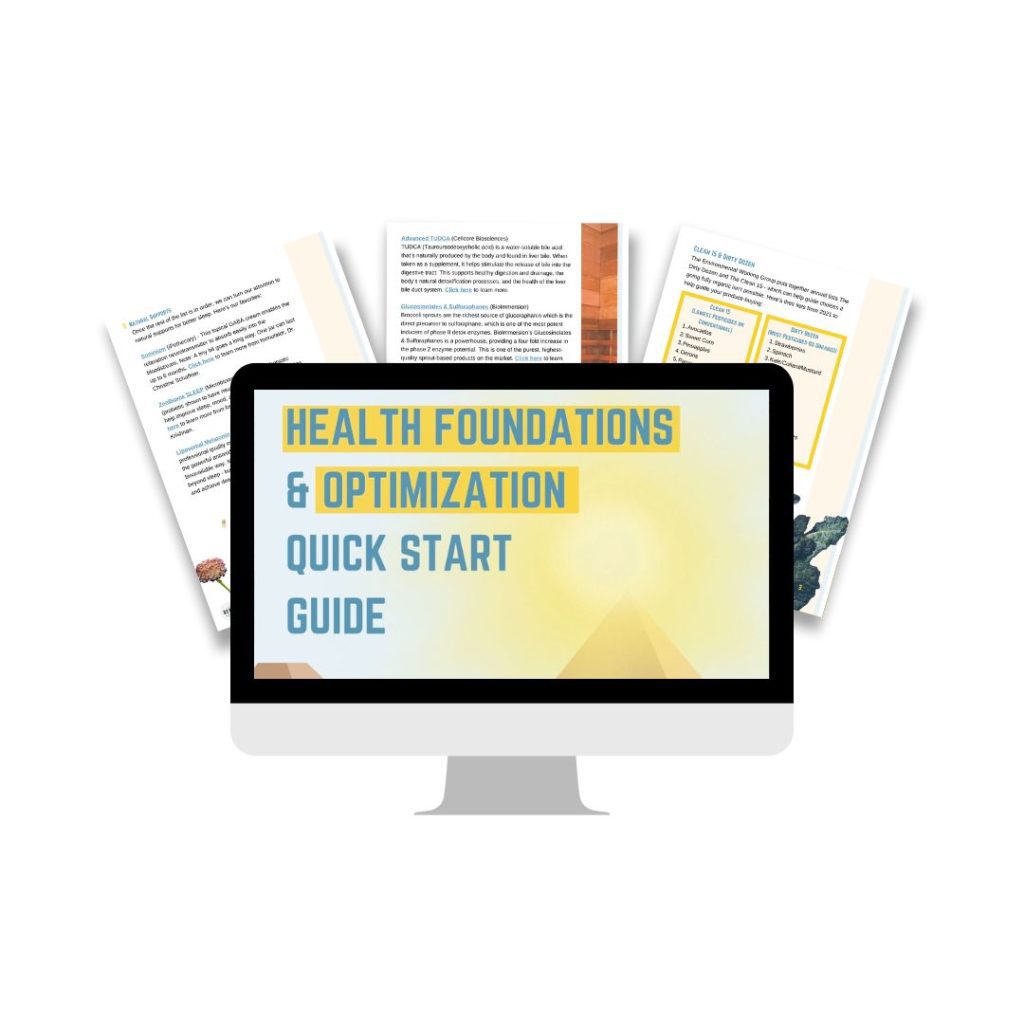
Foundations & Optimization Products
-
$49.00
-
$59.99
-
$49.00
Get Social
Recent Podcasts
Recent Courses
Toxicity & Detoxification Masterclass 2024
The toxicity and Detoxification Masterclass covers a wide array of topics with the following guests:
Brain & Nervous System Masterclass 2024
19 Leading Experts Share Cutting-Edge Science, Effective Practices, and Clinical Strategies to Optimize Brain & Nervous System Health in Kids and Adults
Autoimmune Masterclass 2024
Autoimmune Masterclass brings together 17 of the world’s leading doctors, researchers, and experts on autoimmune diseases who each present their own mini-class on autoimmunity.
Toxicity & Detoxification Masterclass
The toxicity and Detoxification Masterclass covers a wide array of topics with the following guests: 1. Lara Adler, Environmental Toxins Educator 2. Andrea Nakayama, Functional Medicine Nutritionist 3. Maya Shetreat, MD 4. Jill Carnahan, MD 5. Jaclyn Downs, Functional NutriGenomics 6. Dr. Jared Seigler 7. Eric Gordon, MD 8. Jennifer Fugo, MS, CNS 9. Dr. […]
This content is only available to members.
Get the RHT Newsletter
Be the first to get access to special offers, new podcasts, courses, products and events from Rebel Health Tribe.
MegaSporeBiotic™
MegaSporeBiotic is a probiotic blend of 5 Bacillus spores that have been shown to maintain healthy gut barrier and immune function.
Facebook
Twitter
Pinterest
LinkedIn
Reddit
WhatsApp
Telegram
StumbleUpon




